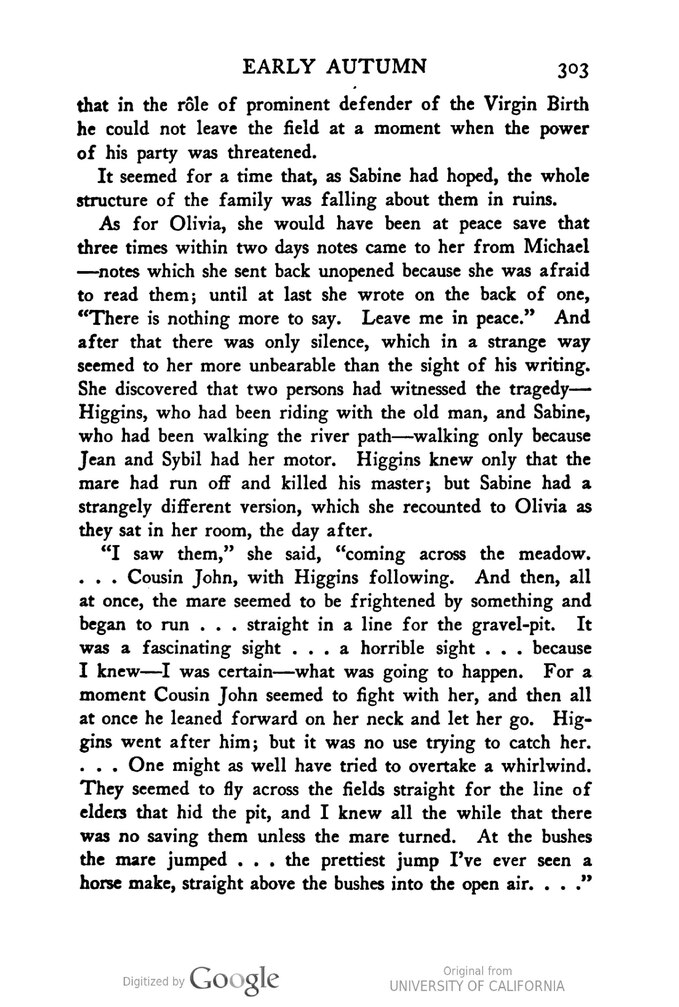that in the rôle of prominent defender of the Virgin Birth he could not leave the field at a moment when the power of his party was threatened.
It seemed for a time that, as Sabine had hoped, the whole structure of the family was falling about them in ruins.
As for Olivia, she would have been at peace save that three times within two days notes came to her from Michael—notes which she sent back unopened because she was afraid to read them; until at last she wrote on the back of one, "There is nothing more to say. Leave me in peace." And after that there was only silence, which in a strange way seemed to her more unbearable than the sight of his writing. She discovered that two persons had witnessed the tragedy—Higgins, who had been riding with the old man, and Sabine, who had been walking the river path—walking only because Jean and Sybil had her motor. Higgins knew only that the mare had run off and killed his master; but Sabine had a strangely different version, which she recounted to Olivia as they sat in her room, the day after.
"I saw them," she said, "coming across the meadow. . . . Cousin John, with Higgins following. And then, all at once, the mare seemed to be frightened by something and began to run . . . straight in a line for the gravel-pit. It was a fascinating sight . . . a horrible sight . . . because I knew—I was certain—what was going to happen. For a moment Cousin John seemed to fight with her, and then all at once he leaned forward on her neck and let her go. Higgins went after him; but it was no use trying to catch her. . . . One might as well have tried to overtake a whirlwind. They seemed to fly across the fields straight for the line of elders that hid the pit, and I knew all the while that there was no saving them unless the mare turned. At the bushes the mare jumped . . . the prettiest jump I've ever seen a horse make, straight above the bushes into the open air. . . ."
